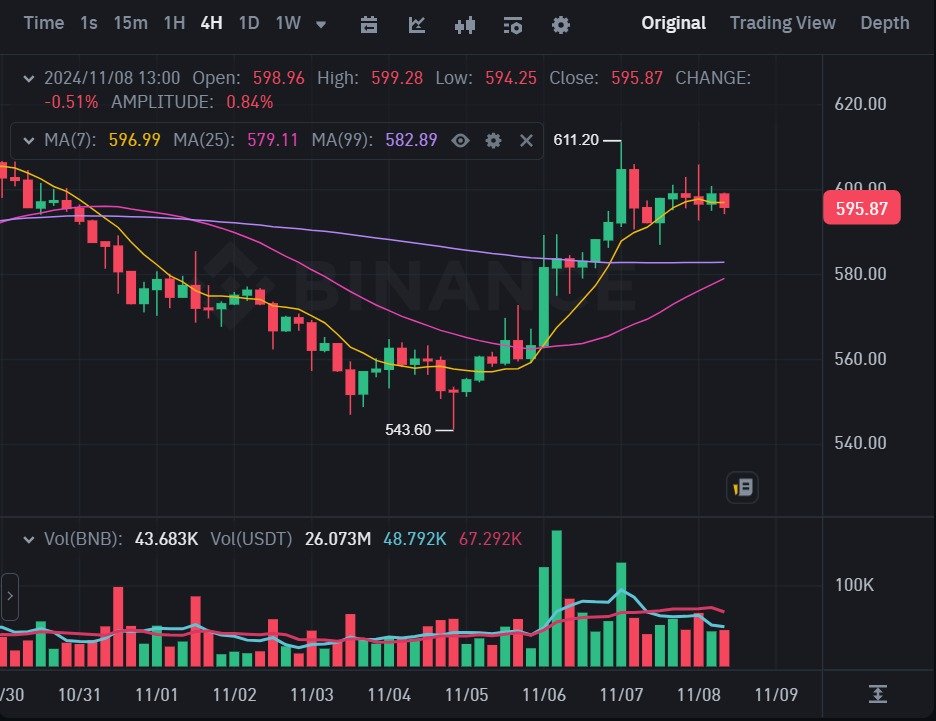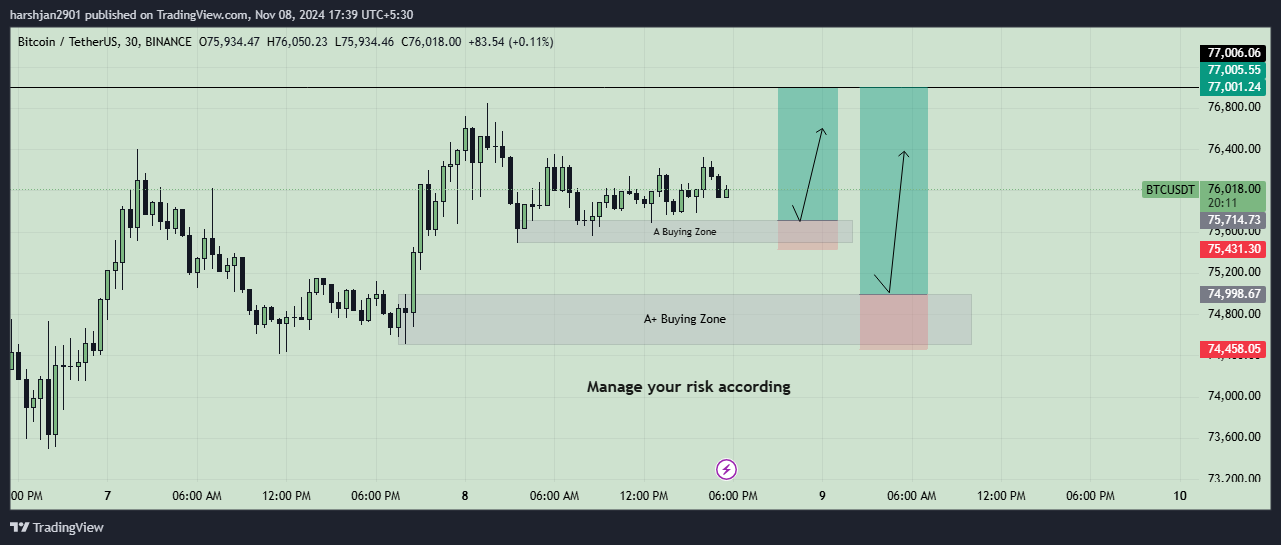Choosing the best forex broker in the USA for 2025 requires careful consideration of factors like regulation, trading fees, platform features, account types, and customer support. Look for brokers regulated by the NFA (National Futures Association) or CFTC (Commodity Futures Trading Commission) to ensure security. Compare spreads, leverage options, and the availability of trading platforms like MetaTrader or cTrader. Consider your trading style—whether you prefer low-cost trades or access to advanced tools. Additionally, check for reliable customer service and educational resources to support your trading journey.
Introduction
Forex trading, also known as foreign exchange trading, remains one of the most dynamic and lucrative financial markets globally. In the USA, it has seen remarkable growth over the years, attracting both seasoned traders and newcomers seeking to capitalize on currency market fluctuations. As we enter 2025, the forex market continues to evolve, offering unprecedented opportunities for those equipped with the right knowledge and tools.
Overview of Forex Trading in the USA
The forex market in the USA operates under strict regulations enforced by agencies like the Commodity Futures Trading Commission (CFTC) and the National Futures Association (NFA). These regulatory bodies ensure fair practices, protecting traders from potential fraud. With a robust trading infrastructure and access to advanced platforms, the USA remains a key hub for global forex trading activities.
Importance of Selecting the Right Broker
Choosing the right forex broker is a cornerstone of successful trading. A reputable broker provides secure trading environments, competitive spreads, and efficient execution. They also offer access to diverse trading tools, market analysis, and educational resources. Selecting the wrong broker, however, can result in financial loss and hinder a trader’s growth.
Key Considerations for 2025
As the forex landscape evolves, traders must stay ahead by considering the following factors:
- Evolving Market Trends: New trading strategies and market dynamics driven by global economic shifts.
- Regulatory Changes: Updates to US regulations affecting trading conditions and broker requirements.
- Technological Advancements: The rise of AI-driven trading tools and blockchain for secure transactions.
Purpose of the Guide
This guide aims to empower traders with the knowledge to navigate the complexities of forex trading in 2025. By understanding market trends, regulations, and broker selection criteria, traders can make informed decisions and optimize their success in the forex market.
Understanding Forex Brokers
A Forex broker acts as an intermediary between traders and the foreign exchange market, facilitating the buying and selling of currency pairs. They provide trading platforms, market access, and tools for individuals and institutions to engage in forex trading.
Role in Trading
Forex brokers play a critical role by offering liquidity, executing trades, and providing leverage, which allows traders to control larger positions with a smaller capital. They also supply market analysis, educational resources, and customer support to enhance the trading experience.
Retail vs. Institutional Brokers
- Retail Brokers: Cater to individual traders, offering lower trading volumes, user-friendly platforms, and access to global markets.
- Institutional Brokers: Serve large entities like banks or hedge funds, focusing on high-volume trading and tailored services.
Key Types of Brokers
- Market Makers (MM):
- Create their own market by setting bid and ask prices.
- Traders buy or sell directly from the broker.
- Often include fixed spreads.
- Electronic Communication Network (ECN):
- Connects traders directly to the interbank market.
- Prices are determined by market participants.
- Typically offers variable spreads.
Pros and Cons
Market Makers:
- Pros: Predictable costs with fixed spreads, ideal for beginners.
- Cons: Potential conflict of interest as the broker profits when traders lose.
ECN Brokers:
- Pros: Transparent pricing and access to real market conditions.
- Cons: Variable spreads and potentially higher commissions.
Choosing the right forex broker depends on your trading goals, experience, and capital. Research thoroughly to ensure a reliable and regulated broker to enhance your trading journey.
Regulatory Compliance in the USA: Ensuring Safety in Forex Trading
Forex trading in the USA is heavily regulated to safeguard traders from fraud and promote transparency. Regulatory compliance is critical for maintaining a fair and secure trading environment, reducing risks associated with unregulated brokers, and ensuring that all market participants adhere to ethical practices.
Importance of Regulation in Forex Trading
Regulations serve as a protective framework for traders and investors, ensuring that brokers operate transparently. By enforcing rules, regulatory bodies prevent malpractice, such as mismanagement of funds or false advertising. A regulated broker provides traders with assurance, helping them trade with confidence in a secure environment.
Major Regulatory Bodies in the USA
- Commodity Futures Trading Commission (CFTC):
The CFTC is a government agency responsible for overseeing the derivatives market, including Forex. It enforces strict compliance measures to protect traders from fraud, abusive practices, and manipulation in the Forex market. - National Futures Association (NFA):
The NFA is a self-regulatory organization tasked with upholding high ethical standards in the Forex and derivatives markets. It offers tools like the NFA ID verification system, which allows traders to verify a broker’s legitimacy.
How to Verify Broker Compliance
To ensure your broker complies with regulations:
- Check the broker’s registration with the NFA using their NFA ID.
- Confirm the broker’s status on the CFTC’s website to verify they are legally authorized to operate.
- Review online reviews and forums for feedback on the broker’s reputation and transparency.
By choosing a regulated broker, traders safeguard their investments and ensure their trading experience aligns with global standards. Regulatory compliance is not just a necessity—it’s the backbone of a trustworthy Forex market.
Key Factors to Consider When Choosing a Broker
Selecting the right broker is crucial for successful trading. Here are the key factors to evaluate:
- Reputation and Reliability
A broker’s reputation speaks volumes about its credibility. Check their history, online reviews, and regulatory compliance. Avoid brokers flagged for scams or fraudulent activities to safeguard your investments.
- Trading Platforms and Tools
The trading platform should be user-friendly and equipped with essential tools like charts, indicators, and real-time updates. Ensure compatibility with your preferred devices, whether desktop, mobile, or web-based platforms.
- Trading Costs and Fees
Hidden fees can erode profits. Understand the broker’s cost structure, including spreads, commissions, and other charges. Compare fees across brokers to find the best value for your trading strategy.
- Leverage and Margin Requirements
Leverage can amplify both gains and losses. Choose leverage levels that align with your trading style and risk tolerance. Review the broker’s margin policies to avoid unexpected account issues.
- Customer Support
Reliable customer support is essential. Opt for brokers offering 24/7 service through multiple channels like live chat, phone, and email. Prompt and professional assistance can make a big difference during critical trading moments.
- Account Types and Minimum Deposit
Different brokers offer various account types. Match the account features to your trading goals. Additionally, consider minimum deposit requirements—some brokers cater to beginners with low deposits, while others are suited for experienced traders.
- Deposit and Withdrawal Options
Fast and secure transactions are key. Verify the speed and methods for deposits and withdrawals, such as bank transfers, credit cards, or e-wallets.
Careful evaluation of these factors ensures a smoother trading experience and enhances your chances of success.
Special Features for 2025: Technological Advancements in Trading
The trading landscape in 2025 is driven by cutting-edge technological advancements that enhance user experience and decision-making. AI-powered trading tools are at the forefront, offering traders real-time data analysis, predictive insights, and automated trading strategies. These tools leverage machine learning to adapt to market fluctuations, making trading decisions more efficient and timely.
Integration with advanced charting software has become seamless, providing traders with a comprehensive view of market trends and allowing for in-depth technical analysis. These integrations enable traders to visualize data in real-time, draw accurate patterns, and make well-informed trading decisions.
Another key development is the rise of Social Trading and Copy Trading. These features empower traders to learn from experienced investors and replicate successful strategies. Leading platforms offer dynamic social communities where traders can exchange insights, share tips, and collaborate, fostering a more engaged and informed trading environment.
Cryptocurrency Integration in Trading
2025 also sees a significant surge in Cryptocurrency Integration. More brokers are now offering crypto trading alongside Forex, creating a hybrid market where traders can diversify their portfolios between traditional currencies and digital assets. This integration allows for greater flexibility, enabling investors to take advantage of both Forex and cryptocurrency market opportunities.
The trend in crypto-Forex hybrids is gaining momentum, blending the volatility of cryptocurrencies with the stability of forex trading. This creates unique opportunities for traders looking to leverage the potential of both markets simultaneously. As the adoption of cryptocurrencies grows, trading platforms are continually improving their systems to provide secure, efficient, and cost-effective ways to trade digital currencies alongside fiat.
Steps to Evaluate a Forex Broker
When selecting a Forex broker, it’s crucial to conduct thorough research to ensure you’re working with a reputable and trustworthy partner. Here are the essential steps to help you evaluate a Forex broker effectively:
- Check Licensing and Regulation
The first and most important step is to verify that the broker is properly licensed and regulated by a reputable financial authority. Regulatory bodies such as the Financial Conduct Authority (FCA), the Commodity Futures Trading Commission (CFTC), and the Australian Securities and Investments Commission (ASIC) play a vital role in overseeing broker operations. Checking for valid licenses ensures that the broker operates under strict compliance with financial laws and regulations.
- Tools and Websites to Verify Broker Credentials
Utilize trusted online tools and websites like FCA Register, NFA (National Futures Association), or ASIC’s website to verify a broker’s credentials. These platforms provide detailed information about the broker’s registration, financial health, and compliance status. You can also review whether the broker is listed as part of any known regulatory complaints or issues.
- Open a Demo Account
Before committing real funds, open a demo account to familiarize yourself with the broker’s trading platform. A demo account allows you to test various features, tools, and functionalities without risking any money. This also helps you assess the ease of navigation, order execution, and other critical aspects of the trading environment.
- Evaluate Trading Conditions
Compare trading conditions such as spreads, leverage options, execution speed, and potential slippage. Spreads—the difference between bid and ask prices—are a key factor that impacts your trading costs. Check if the broker offers competitive spreads and reliable execution speeds, which can significantly impact your trading success.
- Research Customer Feedback
Always take time to research customer feedback. Visit forums, review sites, and check online testimonials from other traders who have used the broker. Look for patterns in reviews—positive experiences, responsive customer service, or issues such as delays in withdrawals or poor execution. This can give you a better sense of the broker’s reputation and the experiences of other traders.
By following these steps, you can confidently assess a Forex broker’s reliability and suitability for your trading needs.

Top Forex Brokers in the USA for 2025
The forex market continues to attract global traders due to its liquidity, accessibility, and potential for high returns. In the USA, there are numerous forex brokers available, each offering distinct features, strengths, and weaknesses. Selecting the right broker involves evaluating aspects such as regulatory compliance, trading platforms, fees, customer support, and overall user experience. Below, we highlight some of the top forex brokers in the USA for 2025, based on these criteria.
1. MetaTrader 4/5
MetaTrader is one of the most popular trading platforms globally, highly favored by traders due to its robust tools, customization options, and ease of use. It supports automated trading through expert advisors (EAs) and offers access to a wide range of technical indicators. However, the platform’s simplicity might not appeal to traders seeking advanced features.
2. TD Ameritrade (Thinkorswim)
TD Ameritrade, known for its Thinkorswim platform, provides comprehensive research tools, educational resources, and various trading instruments. It is ideal for both beginners and experienced traders. The downside could be its higher fees for some services compared to competitors.
3. Interactive Brokers
Interactive Brokers (IBKR) stands out for its low-cost trading structure and extensive range of instruments. It’s highly favored by professional traders due to its advanced features, including global market access and top-tier risk management tools. Its complex fee structure, however, might be overwhelming for beginners.
4. FOREX.com
FOREX.com is regulated and offers an intuitive platform suited for forex and CFD trading. It provides access to over 80 currency pairs and various educational materials. Strengths include competitive spreads, but fees on some accounts may be higher compared to other brokers.
5. OANDA
OANDA is well-regarded for its precision in forex trading, tight spreads, and access to market data. Its platform is user-friendly, especially for forex traders looking for detailed analytics and historical data. However, customer support can sometimes be slow.
6. eToro
eToro is known for its social trading features, allowing users to copy trades of experienced traders. It’s user-friendly and great for beginners who want to explore social trading. The downside is that it charges higher spreads compared to more traditional brokers.
7. Nadex
Nadex is unique in that it offers binary options and spread betting on forex, commodities, and other assets. It’s ideal for traders seeking limited risk and fixed returns. The downside is limited access to currency pairs compared to other brokers.
8. IG US
IG US is part of a global trading giant and offers access to a wide range of financial markets, including forex. It provides competitive spreads and a comprehensive trading platform. Its complexity might be challenging for new traders.
9. Robinhood
Robinhood has gained popularity for its commission-free trades, simplicity, and mobile-first approach. It appeals to retail traders who want a hassle-free way to enter the forex market. However, it lacks some advanced trading features and research tools.
10. TradeStation
TradeStation is a favorite for its powerful trading tools, including radar screen and advanced charting features. It’s ideal for active traders who rely on detailed technical analysis. However, its pricing structure can be complex and costly.
Mistakes to Avoid When Choosing a Broker
- Falling for unregulated brokers.
- Ignoring hidden fees.
- Overlooking customer support quality.
- Not testing the platform with a demo account.
Mistakes to Avoid When Choosing a Broker
Choosing the right broker is crucial for successful trading, but many investors fall into common pitfalls that can lead to costly consequences. One mistake to avoid is falling for unregulated brokers. Always ensure your broker is regulated by trusted financial authorities, as unregulated brokers may lack accountability, transparency, and security.
Another important factor to watch out for is hidden fees. Brokers often have a variety of fees, such as transaction fees, withdrawal charges, and inactivity penalties, which can add up over time. Failing to scrutinize these costs upfront can lead to unexpected expenses.
Additionally, don’t overlook the quality of customer support. A reliable broker should offer responsive and helpful customer service to assist with any issues or concerns. Poor customer support can result in delays and frustration, potentially impacting your trading experience.
Furthermore, never skip the opportunity to test the platform using a demo account. This allows you to familiarize yourself with the trading tools, interface, and functionality without risking real money. Rushing into live trading without a proper trial can lead to costly mistakes.
By avoiding these common errors—choosing regulated brokers, paying attention to fees, assessing customer support, and testing platforms—you’ll set yourself up for a smoother and more successful trading journey.
Future Trends in Forex Trading
The future of Forex trading is poised for significant transformation, driven by emerging technologies, evolving market dynamics, and shifting economic landscapes. One of the most prominent trends shaping the industry is the integration of Artificial Intelligence (AI) and machine learning algorithms into trading strategies. These advanced technologies enable traders to analyze vast amounts of data in real-time, detect patterns, and make informed decisions with greater precision. Machine learning models are increasingly becoming indispensable tools, providing predictive insights and optimizing trading algorithms for maximizing profits.
Alongside AI, the rise of algorithmic trading is transforming traditional Forex markets. Automated trading systems, powered by algorithms, allow traders to execute trades at lightning speed, process complex datasets, and eliminate emotional biases from decision-making. These algorithms are becoming more sophisticated, incorporating factors like sentiment analysis, technical indicators, and news-based triggers to enhance trading efficiency.
Another crucial factor influencing the future of Forex trading is the impact of regulatory changes. Governments and financial authorities worldwide are tightening regulations to ensure market stability and protect traders from potential fraud or market manipulation. These regulatory developments could affect trading conditions, margin requirements, and leverage options, leading traders to adapt their strategies accordingly.
Moreover, the growth of decentralized finance (DeFi) is reshaping traditional financial ecosystems, including Forex trading. DeFi platforms operate on blockchain technology, offering transparency, security, and greater accessibility to global markets. This decentralized approach to finance empowers traders with greater control over their assets and enables peer-to-peer trading without intermediaries.
As these trends continue to evolve, Forex traders must stay informed and agile to navigate the changing landscape, leveraging cutting-edge technologies and staying compliant with regulatory shifts. The future of Forex trading holds immense potential, promising new opportunities for global investors, driven by innovation and technological advancements.
Must Read: Best 10 Forex Trading Platforms USA: A Comprehensive Review for 2025
Conclusion
In conclusion, choosing the right Forex broker is crucial to ensure a secure and profitable trading experience. By taking the time to conduct thorough research and due diligence, you can identify a broker that aligns with your trading goals and risk tolerance. A final tip to remember is to start your journey with a demo account and make small investments, allowing you to practice and gain confidence in real market conditions without risking substantial capital.
Call to Action: Ready to dive into the world of Forex trading? Explore your options with Lumina Lore, your trusted partner in crypto investments. Visit us at https://luminalore.com or contact us directly at +61488875604 to learn more about our expert strategies and personalized support.




